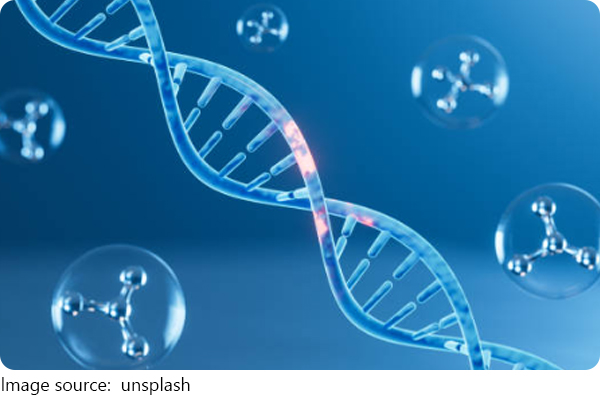Mast Cell Activation!

Mast Cell Activation Syndrome (MCAS) is an increasingly recognized condition characterized by inappropriate and excessive activation of mast cells, leading to a wide range of symptoms that can affect multiple systems.
Despite growing awareness, MCAS remains underdiagnosed due to its heterogeneous presentation and the complexity of its diagnostic criteria.
Mast Cells and Their Role in Health
Mast cells are immune cells primarily involved in allergic responses and defense against pathogens. They reside in tissues such as the skin, gastrointestinal tract, respiratory mucosa, and blood vessels. Upon activation, mast cells release a variety of mediators including histamine, prostaglandins, leukotrienes, and cytokines, which orchestrate inflammation and immune responses.
What Is Mast Cell Activation Syndrome?
MCAS is defined by episodic symptoms caused by mast cell mediator release affecting two or more systems, without evidence of clonal mast cell disorders such as systemic mastocytosis. Unlike primary mast cell diseases, MCAS is often idiopathic or secondary to other conditions.
Typical manifestations include:
Cutaneous: flushing, urticaria (hives), angioedema
Gastrointestinal: nausea, diarrhea, abdominal cramping
Cardiovascular: hypotension, tachycardia, syncope
Respiratory: wheezing, nasal congestion
Naso-ocular: conjunctival redness, itching
Diagnostic Criteria: A Rigorous Approach
Diagnosing MCAS requires a combination of clinical, biochemical, and exclusionary evidence. According to the international consensus, all three key criteria must be met:
- Episodic symptoms consistent with mast cell mediator release affecting ≥2 systems.
- Exclusion of primary (clonal) and secondary mast cell disorders through bones marrow biopsy and other investigations.
Challenges in Diagnosis and Differential Diagnosis
MCAS symptoms overlap with allergies, autoimmune diseases, and functional disorders, complicating diagnosis. Moreover, mediator levels can fluctuate, and some patients have normal baseline tryptase, requiring careful timing of tests during symptomatic periods. Excluding systemic mastocytosis or monoclonal mast cell activation syndrome (MMAS) is essential, as these conditions require different management approaches.
Current Treatment Paradigm: Targeting Mast Cell Mediators
Management of MCAS focuses on symptom control and avoidance of triggers such as allergens, temperature changes, medications, and stress. Pharmacological treatment follows a step-wise approach:
- H1 antihistamines (e.g., cetirizine, fexofenadine) to block histamine effects on the skin and respiratory tract.
- H2 antihistamines (e.g., famotidine) to reduce gastric acid secretion and GI symptoms.
- Leukotriene receptor antagonists (e.g., montelukast) to mitigate inflammatory mediator effects.
- Mast cell stabilizers (e.g., cromolyn sodium, ketotifen) to prevent degranulation.
- Aspirin may be considered in select patients to inhibit prostaglandin pathways, but requires caution.
Emerging Therapies and Research Frontiers
Biologic agents such as omalizumab, an anti-IgE monoclonal antibody, have shown promise in refractory MCAS cases by reducing mast cell activation. Research into kinase inhibitors and other targeted therapies is ongoing.

Patient Education and Multidisciplinary Care
Given the complexity of MCAS, multidisciplinary management involving allergists, immunologists, gastroenterologists, and primary care providers is recommended. Patient education on trigger avoidance and emergency preparedness, including training in epinephrine auto-injector use, is vital.
Mast Cell Activation Syndrome represents a challenging but increasingly understood disorder at the intersection of immunology and allergy. As Dr. Castells concludes, "Recognition of MCAS and adherence to rigorous diagnostic criteria enable tailored therapies that significantly improve patient quality of life."
-
 Functional Dyspepsia!Full After A Few Bites?! Is Functional Dyspepsia The Hidden Reason Behind Your Daily Discomfort?!
Functional Dyspepsia!Full After A Few Bites?! Is Functional Dyspepsia The Hidden Reason Behind Your Daily Discomfort?! -
 Truth About Mild COPD!Just A Little Cough?! Think Again! Mild COPD May Be Quietly Choking More Than You Expect!
Truth About Mild COPD!Just A Little Cough?! Think Again! Mild COPD May Be Quietly Choking More Than You Expect! -
 Arteries in Heart DiseaseFeeling Fine But Still At Risk?! Could Your Arteries Be Quietly Setting You Up For Heart Trouble?!
Arteries in Heart DiseaseFeeling Fine But Still At Risk?! Could Your Arteries Be Quietly Setting You Up For Heart Trouble?!